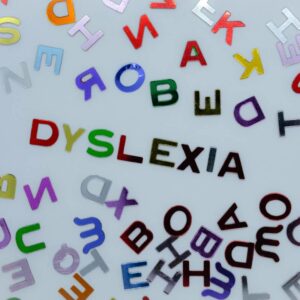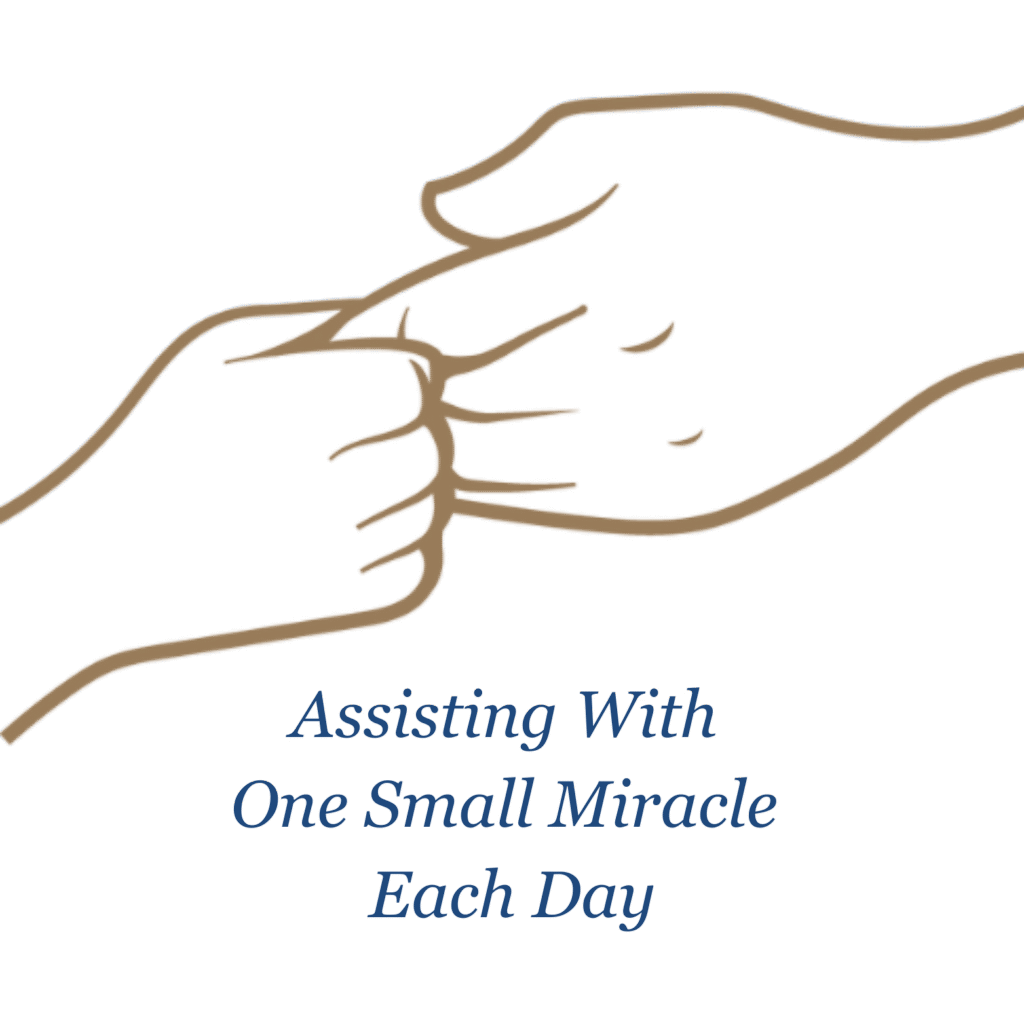Character Traits and the Outdated Concept of Average
Making Learning Environments Reasonable to Manage
In the past decade, Social Psychologists and Neuroscientists have been conducting research and generating empirically supported conclusions that the ideas of grades, IQ, and standardized test scores are not the most important indicators of an individuals success later in life.
Yet in most schools today, the notion is that behaviors observed as failures are how far away a childs cognitive abilities and academic skills reside from average. Children that struggle in the classroom are often thought of as broken, requiring a label. However, as a result of advanced brain imaging techniques, neuroscience has shown us that no two childrens brains are alike. Therefore, being different does not mean one is broken; it is the new normal. Average is simply the mean of all the different brains.
Continuums along average exist for all cognitive (neuropsychological) constructs, attentional and executive function skills, character traits (such as wit and grit), emotional regulation constructs (anxiety, OCD, and negative mood), and personality traits (openness, conscientiousness, extraversion, agreeableness, and neuroticism). Unfortunately (or fortunately), no one has average levels of development across all of these domains. We are all a mix of different levels of variation around average. Yet in most cases, teachers teach everyone the same way, assuming that each child possesses the same tool kit (learning style). In other words, they are teaching to the average.
At times, children believed to be smart, struggle academically, exhibit behavioral issues, disrupt family systems, and have trouble integrating with peers. They are then labeled as lazy, oppositional, unmotivated, mavericks, non-conformers, rebels, ungrateful, and the list goes on and on. In many cases, they can become anxious, depressed, and show exaggerated mood volatility. Many even resort to self-medicating as teens and young adults.
Despite their labels and challenges, some individuals survive school and go on to do great things. However, most do not pursue education to the fullest because their constellation of traits does not fit with the situation they are forced to participate in day after day, month and after month, year after year (the typical classroom environment).
When an adult finds they do not possess the personality style, attentional abilities, and cognitive skill sets to manage a job, the employer quickly notices and must act (e.g., consequences, write-ups, reprimands, etc.). This usually results in the employee not enjoying their job, which can lead to them being fired, quitting, or worse, staying in a bad place and feeling miserable. In turn, anxiety, anger, and depression are typical emotional outcomes.
Children who struggle to meet the demands of school, because it is assumed their brains are average in all areas, do not have the option of quitting. A second grader who lacks the cognitive hardware to be a good reader, as smart as they may be, cannot quit school. They are told not to worry; they only have 10 years left (insert sarcasm)! For the remainder of their school career, these children have to complete what feels to them like a jail sentence. Is there any surprise why this results in emotional dysregulation and poor attention?
Everyone that struggles in school is not ADHD. In most cases, any observed ADHD behaviors are the result of a child being sentenced to sit through a school day, when teachers assume they have average or better cognitive hardware in all areas, and they simply do not.
Today, more than any other time in history, we have the diagnostic skills to understand a childs profile of strengths and weaknesses in order to craft an environment that nurtures them into adulthood in the most effective manner. In the ideal world, in the quest to gain higher-level knowledge (learning), strengths should be capitalized on, and weaknesses are remediated and/or taught around. If a learning environment is managed properly, self-esteem, optimism, and good self-regulation skills have a much more fertile environment to grow in. Simply put, we must not put children in situations that are not reasonable for them to manage.
In his upcoming book, The End of Average, Harvards Todd Rose explains how no one is truly average. Yet, in our schools, workplace, etc. the mythical average person still exists. Get his cutting edge book out January 16, 2016 and read how the concept of average is scientifically wrong!
For more information, please also see Todds 8×8 presentation at Harvard University:https://www.youtube.com/embed/9GcJi4eaSeY
Character Traits/Strengths
With that being said, ones environment should never be made too easy. A child should always be challenged within the context of what is reasonable and attainable. Some diversity/failure is necessary to develop aspects of character that are of value later in life. Additionally, there is clear evidence that character strengths (not IQ), are more important in a child’s school and life success. Allowing children to take risks, explore unstructured social situations, learn because of interests and curiosity, and fail from time-to-time are the ingredients to good parenting that are being over managed by todays helicopter parents. Parents used to think nothing of letting their children run free in the community; exploring the neighborhood, nature, friendships, and returning home at sunset for dinner. Curiosity and exploration served as opportunities for learning, developing passions, and enhancing self-esteem.
In the old days, children would bounce around like pinballs in the back of a car. Now, children are strapped in like astronauts waiting to blast off. Back then, if a child lacked the skills to make the basketball team, they would be cut and left to deal with the disappointment of not being good at something; leading them to either practice more or find another avenue of exploration. These days, all children make the team. Children need to be able to deal with tough situations without their mother or father bailing them out. All of these things are critical to character development.
In our current educational system, our teachers are discouraged from paying attention to character development, while teaching to the average child. Helping kids develop a passion for learning has taken a back seat to teaching them what they need to know for the next standardized test. In their quest to obtain high scores on standardized tests and cover required curriculum goals, schools are not even thinking about how to develop things like perseverance and curiosity. In essence, children are taught what to think, not how to think!
Unknowingly, parents have also become sucked into this cycle of being concerned about grades and standardized test scores, rather than the development of character traits. It is an epidemic that parents in the top socioeconomic tiers are more worried about what college their child can get into, SAT scores, or what other parents may think, rather than being concerned about the development of their childs passion for learning and resiliency to tough situations (GRIT see next section of this article).
Several recent publications have captured the importance of parents assisting in the development of character skills:
The Gift of Failure: How the Best Parents Learn to Let Go So Their Children Can Succeed (Jessica Lahey)
http://www.amazon.com/The-Gift-Failure-Parents-Children/dp/0062299239
How Children Succeed: Grit, Curiosity, and the Hidden Power of Character(Paul Tough)
http://www.amazon.com/How-Children-Succeed-Curiosity-Character/dp/0544104404
So What is the Important Variable?
What core character trait is the best indicator of success in adulthood? Psychologist Angela Lee Duckworth, Ph.D. describes the most important character trait as GRIT. Watch her informative yet brief Ted Talk below:
https://www.ted.com/talks/angela_lee_duckworth_the_key_to_success_grit?language=en
Take the GRIT TEST to find out how gritty you are (please note this is a voluntary research study developed out of the Duckworth Lab at the University of Pennsylvania):
https://sasupenn.qualtrics.com/jfe/form/SV_06f6QSOS2pZW9qR
Breaking News!
Dr. Kathy Tsatsanis will be joining the CPS Team this January! We are very excited to develop a relationship with Dr. Tsatsanis and learn from her outstanding experiences! Read her biography below to learn more about our new esteemed colleague:
Dr. Tsatsanis obtained her Ph.D. in Clinical Neuropsychology in Canada and completed her clinical and research pre- and post-doctoral fellowships at the Yale Child Study Center. Previous research and publications have focused on assessment, neuropsychological profiles, and outcomes in Autism Spectrum Disorders, in addition to several articles in the area of Nonverbal Learning Disabilities. Dr. Tsatsanis is a former Clinical Director of the Developmental Disabilities Clinic at the Yale Child Study Center. With her recent move to Florida, Dr. Tsatsanis maintains her affiliation as an Assistant Clinical Professor (Community Faculty) at Yale. Dr. Tsatsanis has more than 15 years of experience conducting assessments for toddlers through young adults, presenting with a variety of social, emotional, academic, or developmental concerns.
Announcements
Coach Mike is making his presentation rounds this Winter. See below for upcoming opportunities to hear him speak:
- January 13, 2016: North Broward Preparatory (Pompano Beach, FL)
- Topics: Deeper Understanding of Reading Disabilities; ADHD Never Exists Alone
- January 14, 2016: Seacrest Country Day School (Naples, FL)
- Topic: The Logic of Processing Concerns: What is Normal?
- January 14, 2016: One Small Miracle (OSM) Trainings (Naples, FL)
- Topic: A continuation of a series of workshops for professionals to be knowledgeable of how different parts of the brain must work together in order for one to learn. Best practice interventions/accommodations will also be discussed for particular learning profiles.
- January 29, 2016: Lynn Universitys Transitions Conference: Empowering Independent Learning (Boca Raton, FL)
- Topic: The Ingredients for Academic Success Not Just IQ (for university-bound students); Dissecting the Neurobiology of Anxiety (for university-bound students)
- February 10, 2016: Palm Beach School for Autism (Lake Worth, FL)
- Topic: Neurodiversity
- February 12, 2016: Royal Palm Academy (Naples, FL)
- Topic: Training Teachers to Work with Students with Special Needs
- February 26, 2016: Child Provider Specialists (Weston, FL)
- Topic: Grand Rounds for Nova Southeastern Universitys South Florida Consortium Internship Program; discussing Neurodiversity
- March 3-5, 2016: Scientific Learnings 2016 Visionary Conference (San Diego, CA)
- Topic: Technology-Based Remediation for Learning Disorders
- March 30, 2016: AISF Annual Teaching and School Leadership Conference (Miami, FL)
- Topic: Understanding Neurodiversity; Developing a Conceptual Model of How the Brain Works; Recognizing Major Types of Learning and Cognitive Differences
- Coming in the Spring 2016: North Cobb Christian School Presentation to Staff and Families; continuation of a series begun in 2015 (Kennesaw, GA)
Social Skills Training For Our Teens and Tweens
Our social skills training programs continue for our middle school and early high school students! We offer 6 week programs, based on Michelle Garcia Winners Social Thinking model for children in 6th through 10th grades.

Sessions are being held weekly at our Weston office on Mondays from 5:00-6:00pm. Topics will include hidden rules, direct and indirect language, learning the social fake, conversational skills, and much, much, more. Our next program starts January 25th. Please contact our office at 954-577-3396 to sign up today!
Bowl Your Way To Better Social Skills!
Our social skills bowling group is going strong! Children ages 5-10 explore the intricate relationship between how we feel and behave and how this influences the way we are perceived and treated by others. Help your child become a Social Detective and learn about Superflex, the social skills superhero. Fight Unthinkables such as One-sided Sid, Glassman, and Braineater, while learning the social strategies to overcome them.

In Davie, sessions are held on Wednesdays from 5:00-6:30pm at Sparez bowling alley. InNaples, sessions are held on Thursdays from 5:00-6:30pm at Woodside Bowland. Please contact our office at 954-577-3396 to sign up today!
Angler Adventures
with Coach Mike and Staff!
Pompano, Red Grouper, Mangrove Snapper, and Spanish Mackerel are biting!
What are you baiting for?
Let’s Go Get Them!

This is a Social Skills oriented event, run by Child Provider Specialists. The staff participates in this activity four times per year. Participants learn to improve social skills in a relaxed, fun, and leisure-time activity. Children are taught the value of patience and the reward of teamwork. Each child who attends has the opportunity to bond with peers and coaches, problem solve, and feel a sense of accomplishment. Whats better than the thrill of being an angler? Our staff prides itself on providing an experience that has positive, long-lasting effects. Attendees are allowed to keep their catch, as well as bring home and share with the whole family.

We launch from our local beach and fish the beautiful reefs of South Florida for Grouper, Snapper, Yellow-Tail, King Fish, and much, much more!
Come Join Us: Sunday March 13th, 2016
Where: Fisherman Headquarters
301 Sea Breeze Blvd.,Fort Lauderdale 33316
Contact Karen to reserve your spot. 954-577-3396
Success Maker
| South Florida Dyslexia Institute continues providing the environment to match your childs learning style, as we celebrate our 3rd year!!Our prescriptive cognitive and academic remediation day treatment program has experienced unprecedented growth! We have expanded our facility to meet the needs of our ever growing enrollment, and have recently added a sensory motor training class. |
Though at full capacity, space continues to become available as we transition students back into a traditional school setting. Beyond cognitive, attentive, academic, social, and emotional skill development, we are proud to announce that we are one of the premier agencies to provide Computerized Cognitive Remediation Training, specifically designed to meet your childs needs. After much research, we have added Success Maker to our already cutting edge technology remediation programs! Success Maker is a continuously adaptive math and reading program offered in our robust package of remedial intervention options. These brain training exercises are custom built for each childs unique brain profile!
Child Provider Specialists
954.577.3396
Check Out Our Summer Programs!
We will be hosting two separate camps again in Weston, Fl and Naples, Fl over summer called “Brainforest Adventures!”
For partial and full day program options, please call 954-577-3396.
Join Our Weekly Social Skills Groups!
For more information or to join please contact Child Provider Specialists (954) 577-3396.
How Far Are You From Our Weston Office?
2771 Executive Park Dr, Ste 6, Weston, Florida
Schedule an appointment! 9545773396






